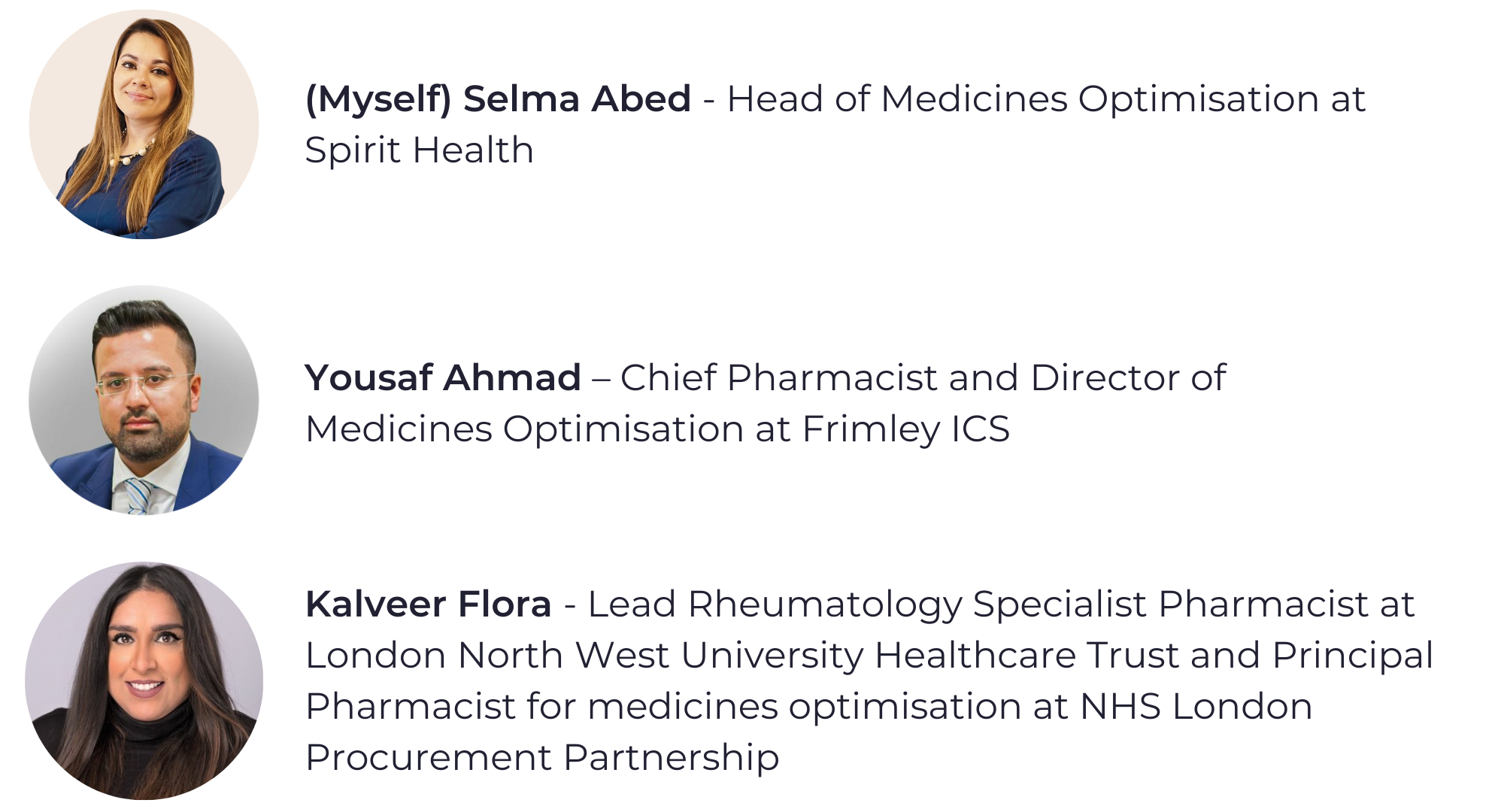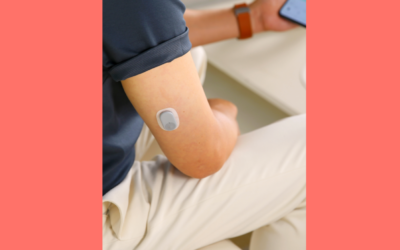By Maddie Tudor on July 27, 2023
The panellists for this webinar include:

I’ll be summarising the key themes and points raised throughout the session as well as sharing my own insights.
We all know that medicines play an important role in healthcare, the value they present stretches far beyond their price tag. In this blog I’ll be delving deeper into the practice of medicines optimisation, exploring the importance of a holistic approach, patient involvement, and understanding the true value of medicines within an ICS. By raising awareness and sharing insights, we can unlock the full value of medicines in improving patient outcomes and overall healthcare quality.
The role of medicines optimisation and measuring value
Medicines play a vital role in maintaining health and preventing chronic illnesses. Ensuring that patients receive the best quality outcomes from their prescriptions is essential.
Medicines optimisation teams within ICSs focus on safety, quality, and outcomes such as value beyond the medicine itself. This in turn will improve patients’ overall health and well-being, reduce hospitalisations, and enhance their quality of life. This shift toward a patient-focused approach recognises that the impact of medicines extends beyond traditional optimisation principles.
Yousaf said, “I see in the next few years, we’ll understand medicines optimisation principles far beyond what we understand today.”
The Definition of ‘Value’ and ‘Patient-Centred Approach’
For Kalveer, when it comes to Rheumatology, the focus is on ensuring that patients can lead normal lives without the need for extensive treatment thus minimising the impact of their condition on their quality of life. While the cost of medicines is a consideration, a holistic approach that includes factors such as adherence, early diagnosis, and patient education is crucial to getting true value out of medicines optimisation.
I mentioned that value can be measured by clinical effectiveness, including deprescribing, optimising dosages, and ensuring appropriate monitoring. By prioritising patient outcomes, we can improve access, listen to patients’ needs, and prevent hospital admissions.
Reflecting on the webinar I think that patients should be active participants in their treatment and care plans. Medicine optimisation is not a one-way process; it involves engaging patients throughout their healthcare journey. By including patients’ perspectives, experiences, and preferences, healthcare professionals can gain valuable insights that guide decision-making and enhance patient outcomes. Empowering patients with knowledge and involving them in treatment decisions fosters a sense of ownership and collaboration, leading to more personalised and effective patient care.
Facilitating discussions of value within an ICS
An audience member posed the question to the panellists, ‘The shift to system-based healthcare management within the new ICS/ICB structures delivers greater opportunity to have a higher quality conversation around the value of medicines, how can this best be facilitated?’
Yousaf made an interesting point that the shift to system-based healthcare management in ICSs, means that education and training play a significant role in communicating the impact of medicines across an ICS. I think this also includes nurturing collaborative conversations and improving medication practices. It’s important to acknowledge that different stakeholders may have different perspectives on value, and the discussions should be refined accordingly.
I added that creating safe forums and engaging with relevant individuals and groups can help drive these conversations forward.
The answer lies in recognising and adapting to the new structure and looking at what presents the most value to your organisation.
Using tools to measure value
Measuring the value of medicines, the outcomes and the impact on patient lives must be considered. Yousaf mentioned that he uses his ICSs Population Health Insight Team to provide valuable data on the needs of the local population and track changes in population based on interventions. This data includes insight into postcodes, people out of work and social-economic data – which allows for a comprehensive understanding of patient quality of life and patient care.
At Spirit Health, we look at the objectives of each programme we start and what it’s trying to achieve for the patient and the ICS. Alongside looking at cost savings from each programme, we also look at deprivation and common ailments within geographical areas using our bespoke and custom prescribing audits to draw up programmes prioritised around the population health – this offers insight into the effectiveness of the work we do after a programme we’ve created has started.
Formulary to be a thing of the past?
Formularies, which consist of a collection of prescribed medicines, have traditionally guided prescribing practices. However, as ‘personalised care’ gains importance, Yousaf thinks that formularies may no longer be a thing in the future. He goes on to say that formularies currently have a place in guiding the majority of prescribing but for the time being, prescribers should take accountability for prescribing practices outside the formulary. They should ensure that the desired outcomes of the medicine have been achieved, and if not, alternative options should be considered. Striving for efficiency in the formulary process while adopting a patient-centred approach is crucial for optimising medication use.
Overall, medicines optimisation goes beyond medicine cost. It’s emphasising patient-centred care, safety, and quality outcomes. It’s time to have more sophisticated conversations about the value of medicines, taking into account the holistic impact on patient experience and patient health. By challenging existing norms and adopting a leadership role, we can reshape medicines optimisation practices and improve patient outcomes. Ultimately, a comprehensive approach that considers the broader context and individual patient needs will lead to better healthcare outcomes and improved quality of life.
If you missed the webinar, you can catch up by watching the on-demand recording. I’d love to hear your thoughts and views on this insightful webinar bought to you by Spirit Health and HSJ, please email or tweet us @SpiritMedsOp.


